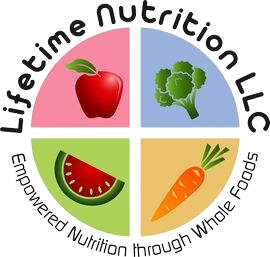|
Being vegan, this vitamin has always been on my radar. Recently, I was reading a book on autoimmune diseases and it was talking about B12 deficiency being a possible cause in most autoimmune cases and alot of the studies were talking about the people eating "good sources" of B12. Good sources being animal products. So it got me thinking, in today's day animals are not raised the way they once were, they are not out on pasture eating grasses, but confined to close living quarters on slabs of concrete being fed corn and grains (and being injected with antibiotics and hormones). A very unnatural diet... B12 comes from the soil, animals don't make B12, they eat it and then you eat the meat and as long as everything is working properly in your body, you absorb the B12. If the animal is not grazing, then they are not taking in the bacteria and not storing the B12 that you would be eating. So it would make sense to me that even though these people thought they were eating food with a high B12 content, they in fact, were not and would show signs of deficiency. You don't need a lot of B12, the RDA is 2.4 mcg per day and most multivitamins provide 100 mcg. But what if that's not enough? Absorption could be an issue that some may have. If B12 is not being absorbed properly it is likely due to lack of hydrochloric acid (stomach juices) or lack of intrinsic factor. Without sufficient hydrochloric acid, the vitamin is not released from its protein source and not available for binding to intrinsic factor. Without sufficient intrinsic factor, the vitamin will not be absorbed. Another absorption issue is that if you take in too much at one time, it floods the receptors and only a certain amount is absorbed, so the amount in a multivitamin is not fully being absorbed. You need to break the dose up.
The good news is that we do recycle this vitamin, reabsorbing it over and over and it can take years for a deficiency to show up. And it is a water soluble vitamin so there is not toxicity to supplementation. The bad news is that your serum levels don't reflect your cellular levels meaning if your serum level is below 500-600 ug/ml you will likely be showing signs of deficiency but your lab work will come back normal. The range for "normal" B12 is between 200-1000. Make sure when you go for blood work that B12 and homocyteine is checked because if you are deficient in B12 your homocysteine level will go up. The functions of B12: DNA synthesis Maintains the sheath that surrounds and protects nerve fibers Promotes normal growth and bone cell activity Helps in the production of Red Blood cells Coenzyme for new cell synthesis Helps maintain and repair tissues Essential for a functioning nervous system Reforms folate coenzyme Helps to break down some fatty acids and amino acids Promotes normal immune function Deficiency symptoms: Muscle weakness Irreversible neurological damage Anemia (B12 is needed for folate conversion into its active form) Malabsorption conditions (can occur after gastric bypass surgeries) Disorders of the small intestines Abnormal sensations like numbness and tingling Clumsiness, awkward movements Unsteady gait, loss of balance Memory problems, confusion, dementia Decreased vision Depression Sleepiness So how do we get enough? If you are eating meat, then make sure that the animal has been grass fed their entire lives, if you are vegan, there are alternatives, like fortified foods for example: Red Star Nutritional yeast, fortified soy milk or supplements. If you are taking supplements, I wouldn't just supplement B12 though because the B vitamins work synergistically together, a B complex is a much better choice.
0 Comments
Leave a Reply. |
AuthorKerri Ferraioli Archives
March 2023
Categories |

 RSS Feed
RSS Feed